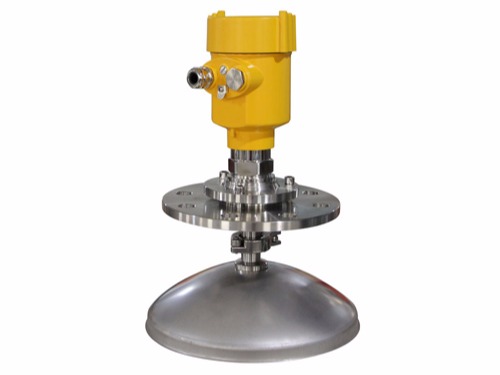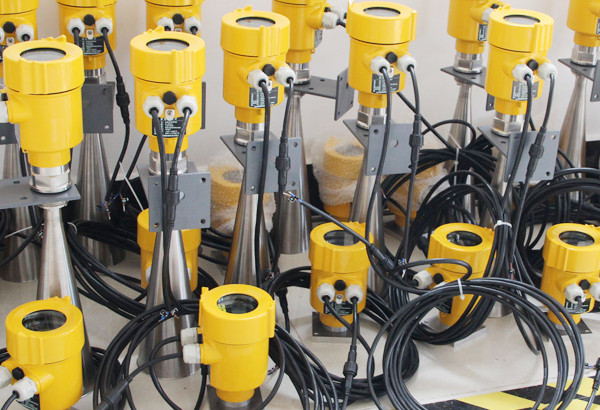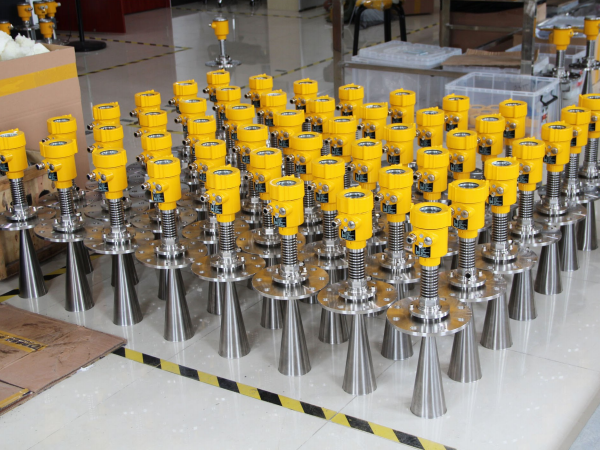Efficient management of wood pellet silos is critical for improving operational efficiency and reducing costs. Among the advanced technologies available, the use of radar level meters has emerged as a reliable solution for accurate material measurement. This article explores the application of radar level meters in mobile wood pellet silos and their distinct advantages.
Challenges in Managing Wood Pellet Silos
Wood pellets, widely used as biomass fuel, possess unique properties such as high fluidity and hygroscopicity. These characteristics make them prone to clumping and absorbing moisture during storage. Managing mobile wood pellet silos requires addressing challenges like water resistance, dust prevention, and moisture control, while ensuring the silos are easy to load, unload, and transport.
Traditional contact-based measurement methods often struggle with these challenges. The physical interaction between sensors and materials can lead to inaccuracies due to material properties such as moisture or density variations. As a result, a reliable non-contact measurement solution becomes indispensable.

Understanding Radar Level Meters
Radar level meters are non-contact measurement instruments that operate based on electromagnetic wave technology. They work by emitting electromagnetic waves through an antenna. When these waves hit the surface of the material, they generate an echo signal. By calculating the time difference between the transmitted and returned waves, along with the known speed of electromagnetic wave propagation, radar level meters determine the exact position and volume of the material.
Key Features and Benefits:
High Precision:
- Radar level meters deliver millimeter-level accuracy, meeting the stringent precision requirements of industrial production.
Resilience to Environmental Factors:
- These meters are unaffected by temperature, humidity, or dust, ensuring reliable operation even in harsh environments.
Non-Contact Operation:
- Since they do not physically interact with the material, measurement errors caused by material properties are avoided.
Low Maintenance:
- Simple structure and easy installation result in minimal maintenance, reducing operational costs.
Versatility:
- Besides wood pellets, radar level meters can measure a wide range of materials, including liquids and powders.

Real-World Application: A Case Study
A large biomass power plant recently adopted frequency-modulated continuous wave (FMCW) radar level meters for its mobile wood pellet silos. These devices provided real-time monitoring of material levels and volumes, seamlessly integrating with the plant’s central control system for automated management.
The results were remarkable:
- Enhanced Production Efficiency: The radar level meters accurately detected material levels, preventing overloading or shortages that could disrupt operations.
- High Stability: The system demonstrated exceptional reliability, maintaining consistent performance under varying environmental conditions.
- Ease of Use: Installation and operation were straightforward, saving both time and labor.
The adoption of radar level meters significantly boosted the plant’s operational efficiency, highlighting their value in industrial applications.

Broader Implications and Future Potential
As industrial automation and digitalization progress, radar level meters are finding broader applications across industries. In addition to wood pellet silos, they are increasingly used for monitoring liquids, powders, and granular materials in sectors such as chemicals, food processing, and mining.
Their ability to deliver accurate measurements, operate under harsh conditions, and integrate with automated systems makes radar level meters indispensable tools for modern industrial facilities. In mobile wood pellet silos, in particular, their unique advantages address the sector’s specific challenges, paving the way for smarter and more efficient management solutions.

Conclusion
The integration of radar level meters into mobile wood pellet silo operations demonstrates how advanced technologies can transform traditional challenges into opportunities. With their precision, reliability, and adaptability, radar level meters not only enhance material management but also contribute to overall operational excellence. As technology continues to evolve, the role of radar level meters in industrial applications will undoubtedly expand, setting new standards for efficiency and performance.
